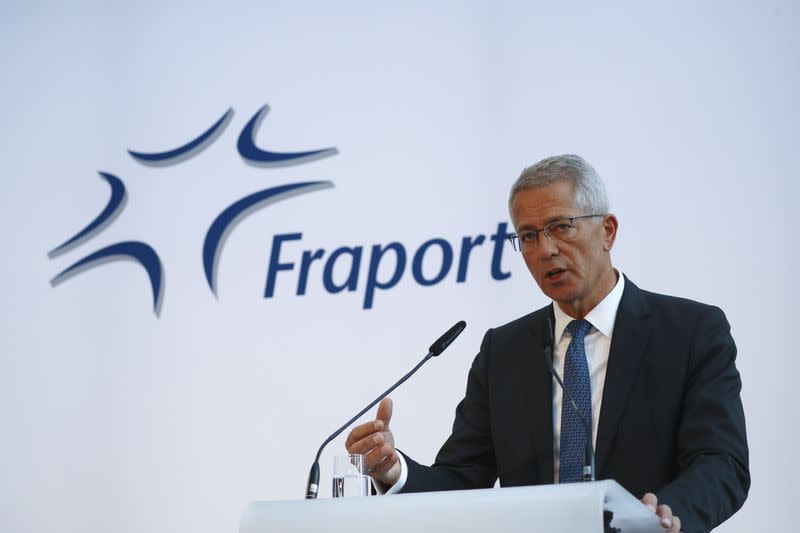EU quota for sustainable jet fuel cannot be met, Fraport CEO says

FRANKFURT (Reuters) - Producers of sustainable aviation fuel (SAF) in the European Union cannot increase output fast enough to meet quotas, the CEO of Frankfurt airport operator Fraport said, adding the new European Commission would have to address the issue.
The fuel, made from bio-based materials such as used cooking oil or wood chips could cut carbon emissions by up to 80%compared with conventional fuel, and is regarded in the sector as essential to making it more sustainable.
"There is not enough sustainable fuel to meet the quotas," Fraport CEO Stefan Schulte said at an event late on Tuesday.
"Production is not ramping up fast enough," he said.
The 27-nation European Union, which will be led by a new set of European Commissioners and members of the European Parliament following elections this month, has adopted rules requiring flights departing from EU airports to carry progressively increasing amounts of SAF.
The quota will increase to 70% by 2050 and start with 2% of total fuel in 2025, compared with just 0.2% of global jet fuel use now.
One of the reasons for the slow uptake is price: biofuel-based SAF costs between three to five times more than traditional jet fuel.
SAF producers have complained they lack certainty in terms of how much fuel to produce and that they could face oversupply issues in the coming years.
The head of airlines industry group IATA Willie Walsh has said there is sufficient demand.
"Every drop of SAF that's produced has been used and will be used," he said last year.
(Reporting by Ilona Wissenbach, writing by Thomas Seythal; editing by Barbara Lewis)

 Yahoo Finance
Yahoo Finance 